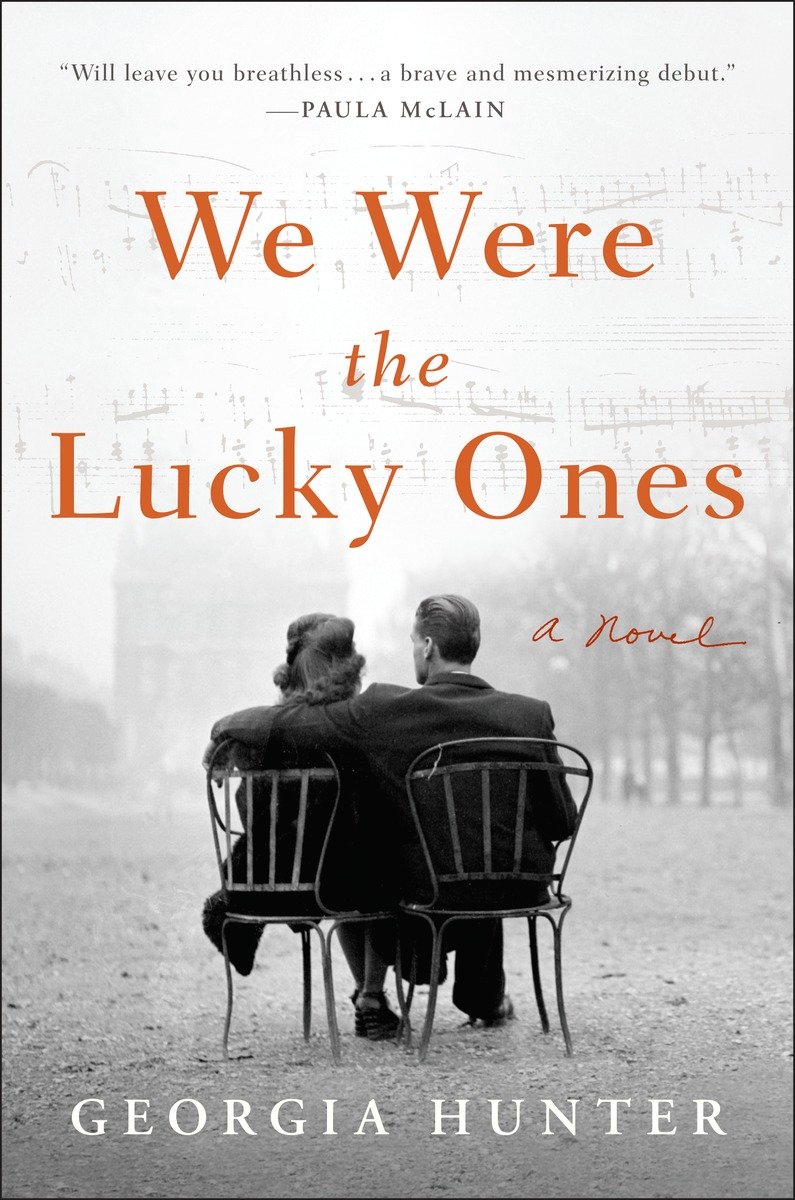
We Were the Lucky Ones
A Novel
کتاب های مرتبط
- اطلاعات
- نقد و بررسی
- دیدگاه کاربران
نقد و بررسی

December 5, 2016
Debut author Hunter excavates the remarkable history of her own family in this chronicle, which follows the journeys of a Polish Jewish family during the Holocaust. The 1939 German invasion of Poland sunders the Kurc family. Aging parents Sol and Nechuma stay in their home of Radom, along with their adult daughters Halina and Mila. Their sons Genek and Jakob join the Polish army; a third son, Addy, is stuck in France, soon to be conscripted. During the course of the war, the Kurcs are flung to distant points on the globe, from Brazil to Siberia. They work for the underground, fight battles in Italy, and are imprisoned in gulags. They stage daring escapes from ghettos, hide in plain sight in Polish cities, and, always, yearn for the days when their family was whole. V-day finds some of the Kurcs together, but the celebration is empty; they are still sundered, mourning, and directionless. The Kurc family’s final triumph is not tied to the defeat of the Nazis, but to the family’s survival and reunion against impossible odds. However, this is not a saga with a jubilant Hollywood ending. The Kurc family’s survival is often due to nothing more than desperate luck. Hunter sidesteps hollow sentimentality and nihilism, revealing instead the beautiful complexity and ambiguity of life in this extraordinarily moving tale.

December 1, 2016
Hunter's debut novel tracks the experiences of her family members during the Holocaust.Sol and Nechuma Kurc, wealthy, cultured Jews in Radom, Poland, are successful shop owners; they and their grown children live a comfortable lifestyle. But that lifestyle is no protection against the onslaught of the Holocaust, which eventually scatters the members of the Kurc family among several continents. Genek, the oldest son, is exiled with his wife to a Siberian gulag. Halina, youngest of all the children, works to protect her family alongside her resistance-fighter husband. Addy, middle child, a composer and engineer before the war breaks out, leaves Europe on one of the last passenger ships, ending up thousands of miles away. Then, too, there are Mila and Felicia, Jakob and Bella, each with their own share of struggles--pain endured, horrors witnessed. Hunter conducted extensive research after learning that her grandfather (Addy in the book) survived the Holocaust. The research shows: her novel is thorough and precise in its details. It's less precise in its language, however, which frequently relies on cliche. "You'll get only one shot at this," Halina thinks, enacting a plan to save her husband. "Don't botch it." Later, Genek, confronting a routine bit of paperwork, must decide whether or not to hide his Jewishness. "That form is a deal breaker," he tells himself. "It's life and death." And: "They are low, it seems, on good fortune. And something tells him they'll need it." Worse than these stale phrases, though, are the moments when Hunter's writing is entirely inadequate for the subject matter at hand. Genek, describing the gulag, calls the nearest town "a total shitscape." This is a low point for Hunter's writing; elsewhere in the novel, it's stronger. Still, the characters remain flat and unknowable, while the novel itself is predictable. At this point, more than half a century's worth of fiction and film has been inspired by the Holocaust--a weighty and imposing tradition. Hunter, it seems, hasn't been able to break free from her dependence on it. Too beholden to sentimentality and cliche, this novel fails to establish a uniquely realized perspective.
COPYRIGHT(2016) Kirkus Reviews, ALL RIGHTS RESERVED.

October 1, 2016
Hunter, who did not know that she came from a family of Holocaust survivors until she was 15, draws on this revelatory history to tell the story of three generations of the Kurc family, trapped in Radom, Poland, during World War II. Astonishingly, all of them survived; fewer than 300 of the 30,000 Jews in Radom at the start of the war were alive at the end.
Copyright 2016 Library Journal, LLC Used with permission.

























دیدگاه کاربران